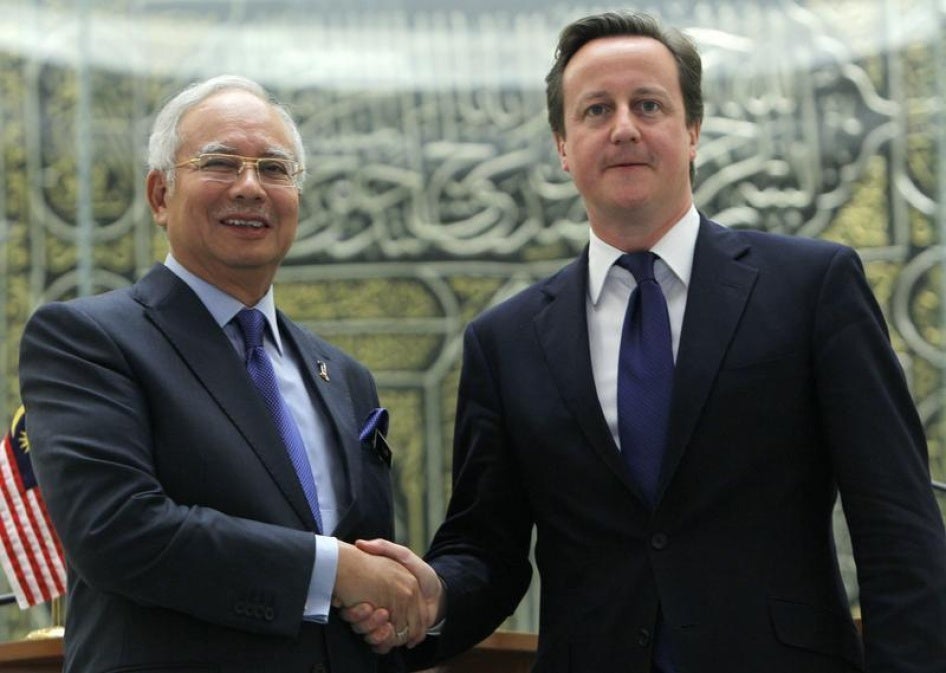Having just given a speech in Singapore on corruption, British Prime Minister David Cameron is scheduled to meet with his Malaysian counterpart, Prime Minister Najib Razak, who is mired in a corruption scandal. Najib’s government has responded to the ensuing investigation by blocking news websites, suspending newspapers, filing charges against critics, and preventing outspoken opposition politicians from leaving the country. On Tuesday, Najib summarily removed from office Malaysia’s attorney general, who was part of a panel investigating the alleged corruption, on grounds of “ill health.”
The alleged corruption stems from Najib’s involvement with the government-owned 1Malaysia Development Berhad (1MDB), a sovereign wealth fund that is mired in a US$42 billion fraud scandal. Najib was chairman of the fund’s board of advisors, and is under pressure to step down until the investigation wraps up. He will doubtlessly try to use his meeting with Cameron to boost his international standing.
It’s essential that Cameron not focus exclusively on trade and security issues, but speak out about Malaysia’s deepening human rights crisis. This means making strong, public statements criticizing the government’s attempts to silence those speaking out on the 1MDB scandal, and its ongoing crackdown on freedom of speech and assembly. Although Najib had several years ago pledged to repeal the country’s notorious sedition law – used to silence dissent – his government adopted a much more aggressive policy toward the political opposition and civil society activists. Since the 2013 elections, the government filed a plethora of cases under the sedition law and other broadly worded laws against peaceful protesters and critics of the government. In April 2015, Najib forced through amendments to the sedition law that, among other things, increased prison sentences, imposed mandatory minimum sentences, and enhanced the government’s ability to use the law against those using social media.
When discussing measures to counterterrorism, Cameron should criticize Malaysia’s recently enacted Prevention of Terrorism Act, a regressive piece of legislation that, among other things, allows a government-appointed body to order indefinite detention without trial and without the possibility of judicial review. The law is rife with the possibility for abuse. Cameron should call for it to be repealed.
Finally, Cameron should address Malaysia’s burgeoning democratic crisis. A politically motivated vendetta against Anwar Ibrahim, the leader of the opposition coalition and a former deputy prime minister, has landed him in prison on charges of sodomy, a criminal offense in Malaysia, after an unfair trial. A former finance minister, Anwar is serving the first year of a five-year prison sentence. Cameron should call for Anwar’s release and publicly request a prison visit with Anwar; when that’s refused, he should meet with Anwar’s wife and daughter, both of whom are currently members of Parliament. Cameron should also meet with members of Malaysia’s beleaguered civil society, courageous individuals whose work is getting more difficult by the day.









